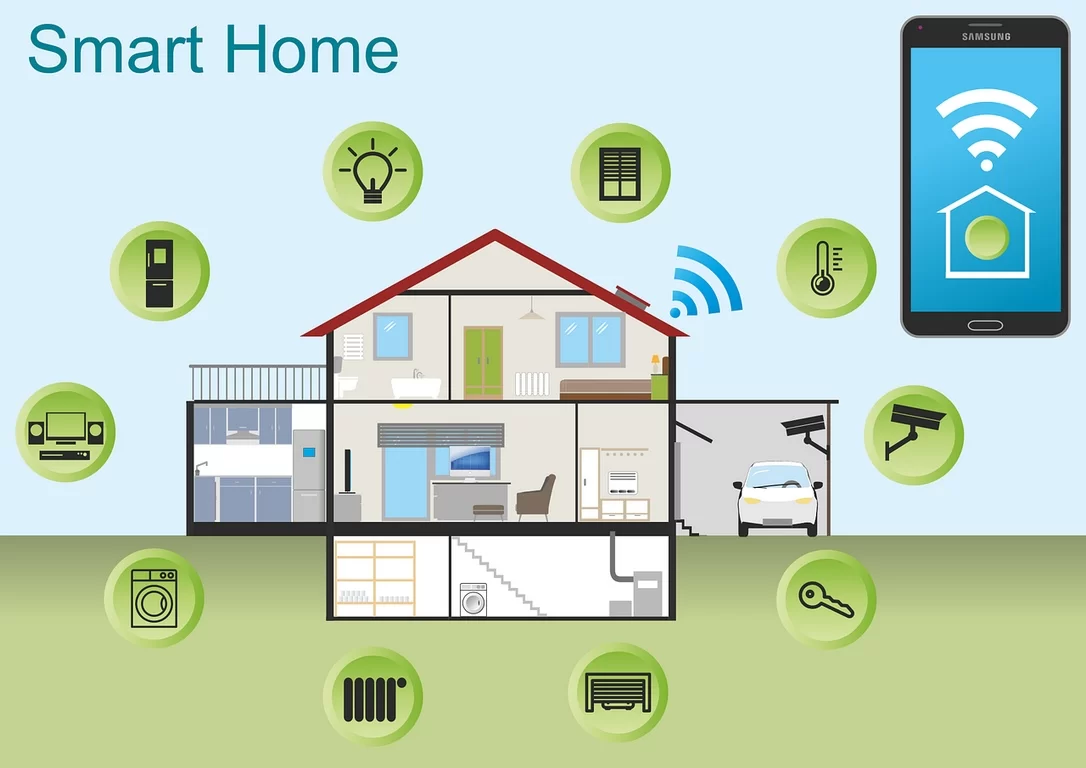A smart home is one that is equipped with devices and systems that allow you to control various aspects of your home environment remotely.
These days, there are a lot of different smart home products on the market, from thermostats that can be controlled with your phone to lights that can be turned off when you’re not home.

Smart homes offer many benefits for homeowners, including energy savings and reduced environmental impact. This article will discuss seven ways a smart home can help the environment.
Imagine a world where your home knows when you’re away and automatically adjusts the temperature to save energy. Or a fridge that can order groceries for you when it detects that you’re running low.
This may sound like the stuff of science fiction, but it’s already a reality for many people. Thanks to the rise of smart technology, homes are becoming more and more efficient, meaning that you can save energy and reduce your carbon footprint without sacrificing comfort.
For example, smart thermostats can learn our routines and adjust the temperature accordingly. They can also be controlled remotely, so you can make sure the heating is off when you’re not at home.
Smart lighting is another great way to reduce energy consumption. LED bulbs use less energy than traditional incandescent bulbs, and they can be controlled with a smartphone or voice assistant.
Smart appliances can also help you to use less water and electricity. For example, some washing machines now have sensors so that they only use as much water as is necessary for each load.
Read Also:
As anyone who’s ever tried to live a more sustainable lifestyle knows, it can be tough to keep track of all the little things.
Did you remember to unplug the coffee maker before you left the house? Did you turn off the lights in the living room? With a smart home, you can rest easy knowing that your home is taking care of itself.
Smart thermostats help to regulate temperature, smart outlets make it easy to turn off electronics when they’re not in use, and smart light bulbs can be programmed to turn off automatically when you leave the room.
In addition, many smart home devices come with sustainability features built-in.
For example, some washers and dryers now have energy-saving modes that use less water and electricity. By making a few simple upgrades, you can turn your home into a lean, mean, green machine. Best of all, once you’ve made the switch, you’ll start saving money on your utility bills.
Imagine never having to worry about whether you left the oven on or if the kids left a light on upstairs. Welcome to the world of smart homes, where everything from your appliances to your thermostat can be controlled with the push of a button—or even better, automatically.
One of the coolest things about smart homes is that they can provide real-time feedback on your home’s energy use. That means you can see exactly how much power you’re using and make changes accordingly.
Not only can this help you save money on your energy bill, but (as discussed above) it also helps reduce your carbon footprint.
While many people think of smart homes as being synonymous with a high-tech and luxurious lifestyle, the truth is that smart home technology can be used to help conserve water and protect the planet’s precious resources.
For example, many smart thermostats are programmed to automatically adjust the temperature in a home based on the time of day and the occupants’ activities.
This can help to reduce energy consumption and save water by ensuring that the home’s heating and cooling system is only used when necessary. In addition, some smart home devices, such as leak detectors, can help to prevent water waste by alerting homeowners to potential leaks.
One of the best ways to make your home more sustainable is to upgrade to LED lightbulbs. Not only do LED bulbs use less energy than traditional incandescent bulbs, but they also last up to ten times longer.
That means you’ll save money on your energy bill, and you won’t have to replace your lightbulbs as often, which reduces wastefulness and environmental impact.
Many people are familiar with the concept of programmable thermostats, which can be set to turn on and off at certain times of the day to save energy.
However, you may not be aware that many other appliances, from ovens to washing machines, can now be connected to the Internet and programmed to run during off-peak hours as well.
This can provide even more savings on your energy bill, as well as wear and tear on your appliances. In addition, some appliances can now be controlled remotely via a smartphone or tablet, so you can make sure that everything is turned off when you leave for vacation.
So if you’re looking for ways to save money and energy, consider investing in some smart appliances. You may be surprised at just how much they can help.
The idea of the “smart grid” is pretty simple: it’s a way to make the electrical grid more efficient by using digital communication and control technologies.
And one of the best things about smart grids is that they give homeowners the ability to sell back unused energy to their local utility company. That’s right—you can actually make money by being energy-efficient!
Now, you might be thinking, “Why would I want to sell my energy back to the utility company? I paid for it in the first place!” But here’s the thing: when everyone uses less energy, it reduces strain on the grid and helps create a cleaner, more sustainable future.
So even though you might not see a direct benefit from selling your unused energy back to your utility company, you’ll know that you’re doing your part to make the world a better place.